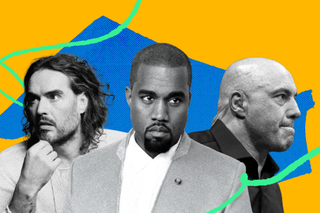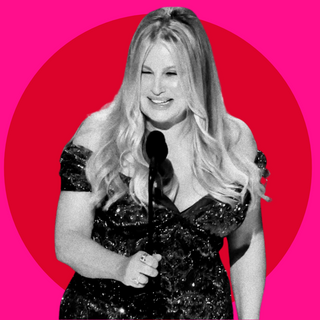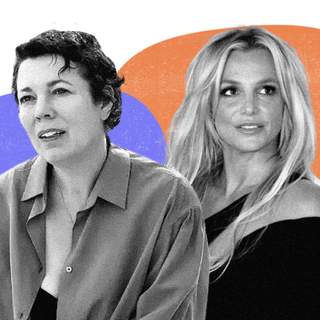
By Undermining Established Truth, ‘Freethinkers’ Threaten Society’s Trust in Itself
The cultural reverence for men who turn themselves into spokespeople for ‘alternative’ thinking provides a pipeline into conspiracy theories and fake news.

Yes, thought should be free. Nobody can police it — for the most part. Instituting a regime of thought crimes would make societies lurch into a death-spiral of authoritarianism, a la 1984. Under this seemingly simple premise, there lies a pool of ideas and allowances that has populated the zeitgeist with personality cults around a very specific brand of men: freethinkers. They’re modern prophets of truth-telling — except the truth is never anchored to any shared experience of fact, but one’s own truth. And this, precisely, is the problem.
These are men who style themselves after courageous philosophers and inhabit corners of the Internet that aren’t subject to the rigor of fact-checking or moderation: YouTube, podcast platforms, and of course, Twitter, the public town square. These are platforms with mass appeal and digital footfall — and the “freer” the thoughts expressed, so to speak, the more the likelihood of a fanbase devoted to opening their minds, as these men promise to enable.
Take Russell Brand, who was called out last week for promoting Ivermectin as a Covid19 cure — a claim that has been debunked repeatedly since it caught on like wildfire. His popularity on YouTube hinges on his contrarian position on most things — even when, by his own admission, he’s wrong. But as a self-proclaimed free-thinker, the truth doesn’t matter as much as the freedom to express anything for its own sake. Many proponents of this approach endorse it because it stays away from “groupthink” — a pejorative among freethinkers who style themselves as lone rangers against the tide of public opinion. In fact, the damage may have already been done, as he popularized anti-vaxx discourse online under the notion that vaccine mandates are what a vague, undefined “They” want people to believe in. Under this logic, the idea of freedom is leveraged to make people oppose norms that are imposed for a collective purpose.
But “groupthink” has garnered an unjustifiably bad name. Groupthink is harmful when leveraged for violence — but on its own, it represents shared values and commonly respected strictures that hold society together. As a group, we agree upon certain common denominator principles — it’s what makes living in a society possible. But freethinkers often undermine the value of the collective public good, in favor of holding, in their minds, unpopular views that uphold individuality. This leads to a situation where there no longer exists a notion of truth that society holds on to — rather than moving forward, we’re forced backwards by being compelled to argue the validity of positions that have already been disproven.
And that’s at the heart of freethinking: a rugged, masculine individualism that valorizes a person’s freedom to think and act in any which way they’d like, even against public interest. In fact, public interest is distorted into various animal-related epithets: anyone who professes loyalty to a proven fact is said to be part of the “sheeple”; those who denounce conspiracy theorists are accused of having a “crab mentality.”
Related on The Swaddle:
Why People Are Suckers for a Good Conspiracy Theory
Brand soon admitted his mistake — after his own followers fact-checked him. But not before “claiming that other media outlets are funded by Pfizer and accusing them of imposing “a set of systemic beliefs,” whatever that means, on their viewers,” as Vice reported. His philosophy is telling: “Reality is only a story, a consensus, what you believe in. That’s why it can change so easily,” he once said in an interview.
A few years ago, Kanye West — also a self-styled freethinker (“Free thinkers don’t fear retaliation for your thoughts. The traditional thinkers are only using thoughts and words but they are in a mental prison,” as he observed in a Tweet) — called slavery a “choice.” The comments predictably triggered a storm of backlash, but it allowed West to further entrench his position as a martyr for free thought, where the outrage arguably proves his whole point. In a deleted Tweet, he said “[O]nce again I am being attacked for presenting new ideas,” with his then wife, Kim Kardashian, chiming in to ask whether freethinking “is not allowed in America?”
Scholars have noted that freethought as a term emerged in the context of American independence when a group of people fought for the separation of church and state — but its roots go back to the Enlightenment. As such, it also represented a group of people who fought for ideas that, at their time, were considered radical — abolitionists, feminists, and others were early freethinkers who emphasized reason and equality rather than obedience to religious scriptures. But the tradition soon got “bastardized” by right-wing contrarians, as Jeet Heer noted in The New Republic. Where it was once used to argue for greater freedoms for all, freethinking is now used to reposition conservative and regressive ideas as “suppressed” by a progressive “establishment.”
Perhaps the most popular freethinker of our times — and, for that reason, among the most harmful — is Joe Rogan. Rogan’s podcast is a monster hit on Spotify, and is among the most streamed for its deceptively simple premise: experiencing new ideas together, even from people you may not like. It’s reasonable to a fault — except for the fact that people with actively dangerous ideas are reframed as people you “may disagree with.” Within this freethinker’s utopia, no idea is out of bounds, and nothing is established fact that cannot be deconstructed. But sans the academic rigor required to question and unpack ideas, Joe Rogan simply calls upon the most polarizing figures — alongside progressive ones, too — to speak their minds as a way to challenge audiences. It frames something as essential as fact-checking as yet another censorship tool by “Big Media,” stifling thoughts that “They” don’t want you to think.
Related on The Swaddle:
YouTube Finally Bans Anti‑Vaxx Content. Why Did it Take So Long?
There’s a populist appeal to figures like Joe Rogan. They’re eminently affable men with cool guy personas that one might be able to picture themselves having a beer with. They’re open-minded enough to accept anything and come to a decision themselves. But herein lies the fatal flaw — there’s an inherent self-aggrandizement in the notion that a single person is in possession of all the knowledge, facts, and critical thinking skills to be able to weigh arguments each other in a subject they’ve not encountered before. It dismisses the idea of expertise or interpretation — in one fell swoop undermining academics, scientists, and journalists who do the work of reporting, fact-checking, and analyzing for us.
When freethinkers do this, they open up an abyss where anything goes, facts are dissolved, and what supposedly emerges is a free for all playground of ideas — ones which, when held in equal weight with facts, actively instill harm. Joe Rogan’s podcast has seen all manner of ideas given equal weightage: from the fact that the mythical underwater city of Atlantis was a real place, to vaccine hesitancy amid a pandemic that killed millions. These are both disproven, but the value system of freethinking suggests that the vastly unequal consequences of normalizing both ideas are subsumed under the supremacy of the Idea itself. In other words, all ideas have equal space and consideration, which has devastating consequences.
“Part of the job of the media is to do something similar: to go out and look for the truth, adjudicate carefully between competing claims, and tell us what’s actually the case. Media outlets shouldn’t be “relativistic,” telling us that while some people say the Earth is flat, others say it’s round, and leaving us to sort out who is right,” notes Nathan Robinson. But (justified) distrust in the media has led to freethinkers filling the vacuum to insist that all positions are equally valid, leading to a crisis of truth at a moment when there’s no time to constantly debunk false claims.
Climate change is killing us now. Vaccines are essential now. The consequences of slavery continue to bear out on people now. Going back to the foundations of a fact simply for the sake of it, then, leads us astray into our own self-destruction.
Rohitha Naraharisetty is a Senior Associate Editor at The Swaddle. She writes about the intersection of gender, caste, social movements, and pop culture. She can be found on Instagram at @rohitha_97 or on Twitter at @romimacaronii.
Related


How Jennifer Coolidge Redefined the ‘MILF’ Character as Someone to Root For
